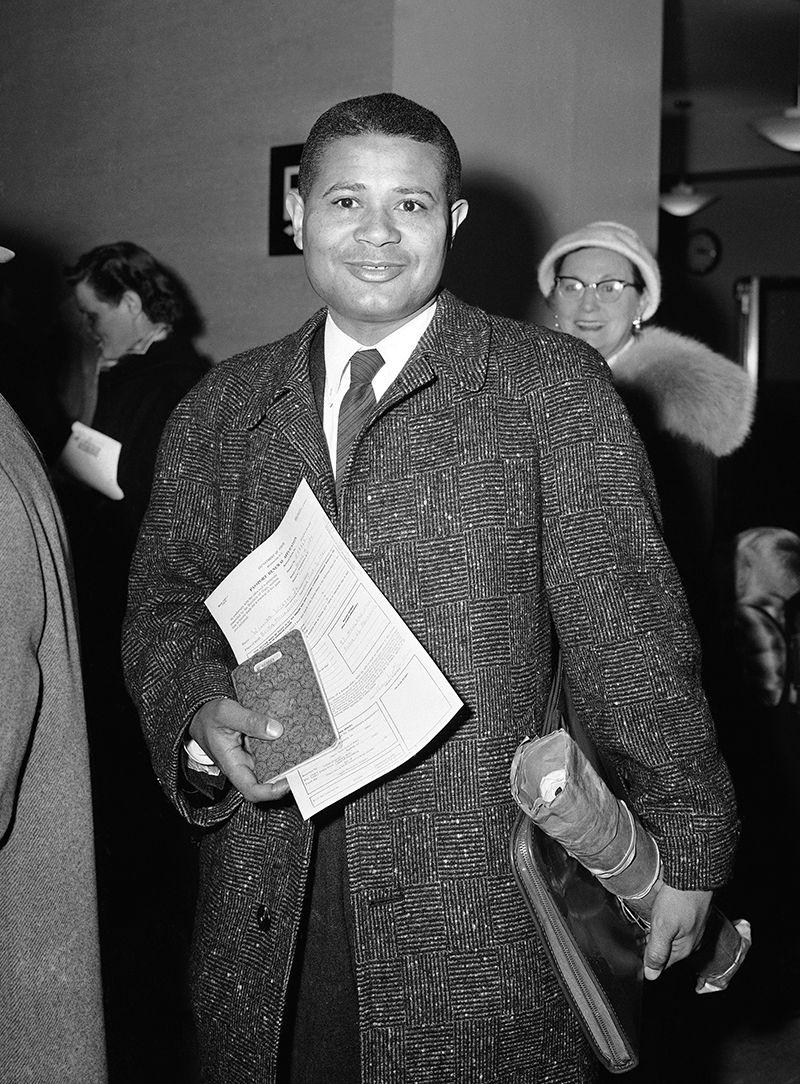William Worthy, who fought with the government over reporting trips to China, Cuba and Iran, died at a nursing home in Massachusetts on May 4. He was 92. It was during his Nieman Fellowship in 1956-1957 that Worthy, a reporter for the Baltimore Afro-American and correspondent for CBS News, first defied the State Department’s travel restrictions by flying to China during winter break to report for CBS. The government refused to renew Worthy’s passport after the trip, so in 1964 he went to Cuba without one. On his return he was convicted of entering the country illegally. He successfully appealed, and a federal court declared the law unconstitutional. His case inspired folk singer Phil Ochs to record “The Ballad of William Worthy” in 1964.
Worthy won the 2008 Lyons Award for Conscience and Integrity in Journalism
Read Worthy’s obituary in The Boston Globe
“Bill Worthy Reports on China” - Summer 1957
In this excerpt from a talk given after his trip to China, Worthy describes some of the institutions he visited, from a university where “all the intellectuals had been scared stiff, and no one was doing any work for fear of getting into ideological trouble” to a department store where the products “retain their capitalistic names although manufactured now in the state-owned factories of the People’s Republic of China.”
“The Iranian Papers Case” - Spring 1983
After Worthy returned from Iran in 1983, the FBI confiscated 11 books containing reprints of documents seized from the U.S. Embassy during the revolution. Worthy writes about the case and the Justice Department’s argument that, even though the books were printed in Iran and freely available to purchase there, they were the property of the U.S. government.
“Prolonged Surrender to Reality: U.S. Media Coverage of Revolutions” - Fall 1985
After his Iran trip, Worthy gave a presentation at Harvard’s Kennedy School about the state of the country, along with a history of how newspapers have covered past revolutions. Going back to the Bolsheviks in Russia, he says, journalists have regularly overstated the chaos after revolutions and erroneously foretold their imminent failures.
Worthy won the 2008 Lyons Award for Conscience and Integrity in Journalism
Read Worthy’s obituary in The Boston Globe
Worthy's past work in Nieman Reports
“Bill Worthy Reports on China” - Summer 1957
In this excerpt from a talk given after his trip to China, Worthy describes some of the institutions he visited, from a university where “all the intellectuals had been scared stiff, and no one was doing any work for fear of getting into ideological trouble” to a department store where the products “retain their capitalistic names although manufactured now in the state-owned factories of the People’s Republic of China.”
“The Iranian Papers Case” - Spring 1983
After Worthy returned from Iran in 1983, the FBI confiscated 11 books containing reprints of documents seized from the U.S. Embassy during the revolution. Worthy writes about the case and the Justice Department’s argument that, even though the books were printed in Iran and freely available to purchase there, they were the property of the U.S. government.
“Prolonged Surrender to Reality: U.S. Media Coverage of Revolutions” - Fall 1985
After his Iran trip, Worthy gave a presentation at Harvard’s Kennedy School about the state of the country, along with a history of how newspapers have covered past revolutions. Going back to the Bolsheviks in Russia, he says, journalists have regularly overstated the chaos after revolutions and erroneously foretold their imminent failures.



